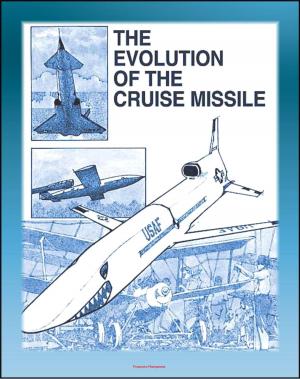Circling the Earth: United States Plans for a Postwar Overseas Military Base System, 1942-1948 - Projecting Military Power after World War II
Nonfiction, History, Military, Aviation, World War II| Author: | Progressive Management | ISBN: | 9781476128375 |
| Publisher: | Progressive Management | Publication: | June 21, 2012 |
| Imprint: | Smashwords Edition | Language: | English |
| Author: | Progressive Management |
| ISBN: | 9781476128375 |
| Publisher: | Progressive Management |
| Publication: | June 21, 2012 |
| Imprint: | Smashwords Edition |
| Language: | English |
Much has been written about the collapse of World War Il's Grand Alliance into a sharply divided postwar world, the onset of the Cold War, and the somewhat reluctant assumption of Western leadership by the United States. Plans for an extensive postwar overseas military basing structure and the nexus of political, military, and commercial interests which drove that planning are important parts of the story that have gone largely unexplored.
In many ways, the evolution of planning for overseas bases from 1942 through 1948 reflected the growing sophistication and political maturation of American foreign and military policy. In spite of the dismal failure of the League of Nations, early planning focused on basing requirements for an envisioned postwar international police force. The unabashed idealism expressed in this notion and the breathtaking assumptions required to make it feasible appear exceptionally naive to the contemporary observer, but only in the crisp focus of hindsight. Many believed that a sweeping victory by the Grand Alliance could make all things possible, even a successful international police force to keep the peace and bring order out of postwar chaos.
Much has been written about the collapse of World War Il's Grand Alliance into a sharply divided postwar world, the onset of the Cold War, and the somewhat reluctant assumption of Western leadership by the United States. Plans for an extensive postwar overseas military basing structure and the nexus of political, military, and commercial interests which drove that planning are important parts of the story that have gone largely unexplored.
In many ways, the evolution of planning for overseas bases from 1942 through 1948 reflected the growing sophistication and political maturation of American foreign and military policy. In spite of the dismal failure of the League of Nations, early planning focused on basing requirements for an envisioned postwar international police force. The unabashed idealism expressed in this notion and the breathtaking assumptions required to make it feasible appear exceptionally naive to the contemporary observer, but only in the crisp focus of hindsight. Many believed that a sweeping victory by the Grand Alliance could make all things possible, even a successful international police force to keep the peace and bring order out of postwar chaos.















